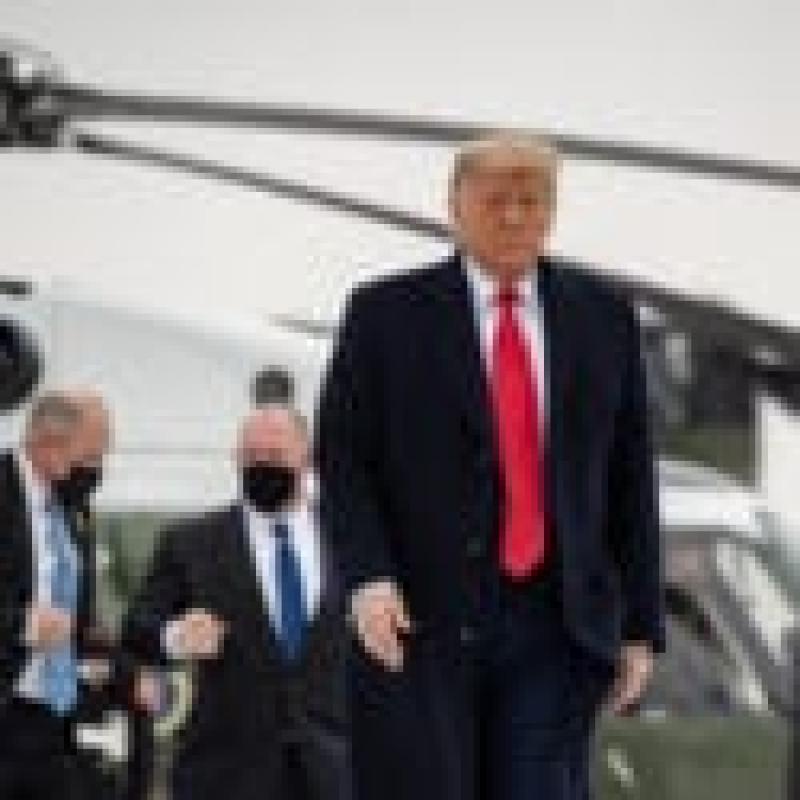Senators Did Not Hear Witnesses Against Trump. House Investigations Should. | Washington Monthly



There is still so much that we don't know about the president's actions in the lead-up to January 6.

Last night, I wrote about the moral, electoral, and historical imperative for the Senate to call witnesses in the impeachment trial of Donald Trump. There is still so much that we don't know about the President's actions in the lead-up to and the events of January 6th. We don't know exactly what he knew about how violent it would become. We don't know exactly why he and his appointees refused to allow more help to the Capitol Police both before the insurrection and during the sacking the Capitol. We don't know the details of what he said on the phone with legislators before, during and afterward. And crucially we don't know the timeline of exactly what Trump did, hour by hour, in consultation with his closest aides.
The Senate should have learned those things before voting on conviction. Many Democrats understood that, and for a few hours there was some deep confusion this morning about whether witnesses to Trump's behavior would be called. In the end, the Senate chose to prioritize next week's recess and McConnell's filibuster threats over getting it right. And while perhaps more witnesses might not have changed any votes, it's impossible to know that now. The Senate voted to acquit Trump by a tally of 57-43.
But the opportunity to hold Trump accountable to history and expose his actions to the American people still remains. The House must initiate investigations, making liberal use of its subpoena power to force witnesses to Trump's behavior and state of mind to go on the public record.
In a breathtakingly disingenuous speech after his vote to acquit, Senate Minority Leader Mitch McConnell confirmed Trump's guilt on the merits of the case, but used the fig leaf of a spurious technicality to say that the Senate had no power to impeach a former president (even though that standard would mean a president could commit any crime in the last weeks of his presidency, and even though McConnell himself was responsible for delaying the impeachment vote until after Trump had left office.) During the speech, McConnell suggested that Trump could still be held accountable criminally and civilly for crimes committed during his tenure.
But the problem is that accountability for the President of the United States is different from accountability for a private citizen. It is legal for a private citizen to root for the overthrow of the federal government, to wish ill on the health of elected officials, and to stand by and do nothing while both legislators and democracy itself are under attack. It is legal for a private citizen to advocate for the end of democracy itself and the installation of a military junta.
But the President takes an oath to defend the Constitution. The high crimes and misdemeanors that apply to a chief executive are not the same as literal felonies and misdemeanors under the U.S. legal code. A president who gleefully incites a violent insurrection, but still maintains just enough plausible deniability with a single request to his mob to "stay peaceful" so as to stay in the law's good graces under the Brandenburg test, is still guilty of an impeachable high crime by the standards to which a chief executive must be held. Most crucially, impeachment is an inextricably political process. While the legal goal of the impeachment trial was to bar Trump from ever holding office again, in theory even the process of trial and investigation itself should help inoculate the country from ever considering electing this execrable person from holding high office again.
So the investigations must continue, above and beyond the criminal and civil proceedings ensuing from literal violations of the laws that govern private citizens.
Certainly, Republicans would not hesitate for a moment. Republicans turned Benghazi and Solyndra into months of kangaroo hearings in the House despite neither involving morally objectionable conduct by Democrats. Trump's unprecedentedly dangerous actions relating to the January 6th insurrection deserve at least as much scrutiny.
The majority of Senate Republicans refused to do their moral duty today, and their threats to shut down the Senate if witnesses were called helped to curtail what should have been a lengthier trial. But the House has no such constraints, and is under no requirement to help Republicans move on and sweep this attempted coup under the rug.
There must be further investigations. There must be subpoenas. What is currently in the shadows must come to light. The judgment of history and the American people demand it.









I agree. They had nine congressional investigations about Hillary Clinton and Benghazi and the invasion of Congress by a Trump mob merits a similar total.
But the opportunity to hold Trump accountable to history and expose his actions to the American people still remains. The House must initiate investigations, making liberal use of its subpoena power to force witnesses to Trump's behavior and state of mind to go on the public record.
Haven't the dopey and dumb Dems wasted enough of the taxpayers money?
What about doing the business of the people...who are suffering from Trump fatigue?
It's amusing. Americans expect rational, competent, calm government from the Dems, and over-the-top from Rs..
Take a close look at Greg's Comment . He's appealing to the Dems fiscal/budgetary responsibility.
Greg knows, as all of us know, that the Republicans have wasted time and money on pointless investigations, while acquitting blatant guilt.
Typical Republicanism: accuse your opponents of what you youself do.